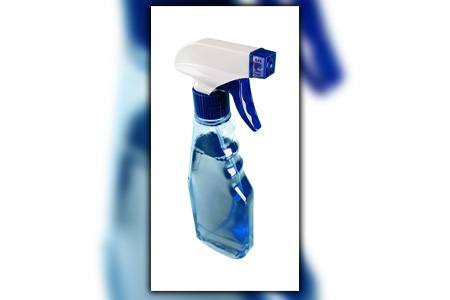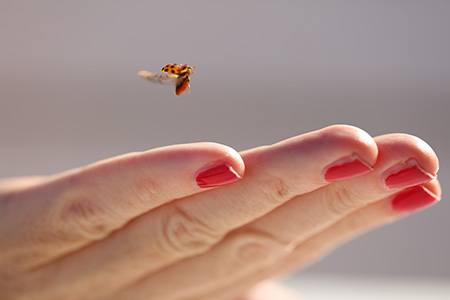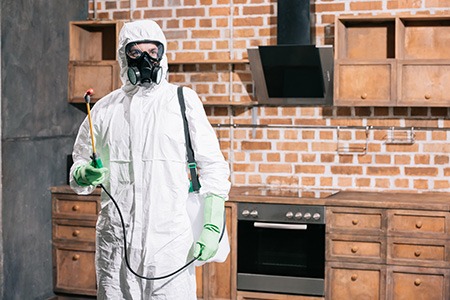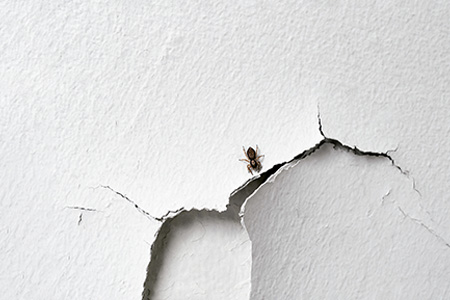Does Windex Kill Spiders? The Magic is in This Ingredient
Author: Anne Cowart | Editor: Omar Alonso
Review & Research: Jen Worst & Chris Miller

Spiders are common household pests that can be both a nuisance and even potentially dangerous due to some species' venomous bites. As a result, many people seek quick and easy solutions for spider control, leading to the question: Does Windex kill spiders?
Here we will delve into the effectiveness of Windex against these arachnids while exploring its active ingredients, pros and cons, as well as alternative methods for spider control.
Understanding Windex & Its Effectiveness on Spiders

Windex contains active ingredients such as ammonium hydroxide and sodium dodecylbenzene sulfonate, which can harm spiders by disrupting their delicate systems and causing respiratory failure.
Composition & Active Ingredients of Windex
Windex, a popular household cleaning product known for its efficacy in cleaning glass surfaces, is composed of several active ingredients that work together to provide a streak-free shine.
The primary ingredient in Windex is ammonia, a powerful compound that effectively removes dirt and grime from various surfaces.
It's important to know these key components when discussing the effects of using Windex on spiders. Ammonia's potency allows it not only to clean surfaces but also act as an insecticide against pests like spiders.
Surfactants can negatively impact insects by breaking down their exoskeletons or suffocating them due to reduced oxygen access.
Impact of Windex's Active Ingredients on Spiders
Windex, a common household cleaning product, contains two active ingredients that make it effective against spiders: ammonia and sodium dodecylbenzene sulfonate. These chemicals work together to create a potent solution capable of killing spiders upon contact.
For Windex to effectively kill a spider it must be applied generously and directly onto the arachnid, ensuring thorough coverage (just don't spray Windex on stainless steel). As soon as the solution comes into contact with the spider's body, it is absorbed into their bloodstream which leads to rapid death.
While this method can provide quick relief from an undesirable encounter with these eight-legged creatures, it is important to note that using Windex for spider control may not be sustainable or environmentally friendly due to potential harm caused to beneficial insects and pets.
Pros & Cons of Using Windex on Spiders

Does Windex kill spiders? Yes, but using Windex for spider control has its advantages and disadvantages. It is a quick, cost-effective, and easy solution to get rid of spiders in your home. However, it can harm beneficial insects and pets and may not prevent spiders from returning.
Quick & Effective Solution for Spider Control
Windex has gained a reputation as a quick and effective solution for spider control in households. Its active ingredients, such as ammonium hydroxide and sodium dodecylbenzene sulfonate, come together to create a potent formula that eliminates spiders within seconds of contact.
For instance, if you happen upon an unwelcome eight-legged visitor on your windowsill or countertop, simply reaching for your trusty bottle of Windex can provide swift relief from the arachnid intruder.
A few sprays directly onto the unsuspecting spider will have them succumbing to the powerful chemicals within moments. However, while Windex offers speed and effectiveness in dealing with these pests, it's crucial to weigh the potential risks against its benefits – particularly when considering how it may affect beneficial insects or household pets.
Cost-Effective Solution
Using Windex as a spider repellent is considered a cost-effective solution for homeowners looking to rid their homes of pesky spiders without breaking the bank. A bottle of Windex costs significantly less than professional pest control services or even some chemical sprays specifically designed for spider control.
However, it's essential to note that while Windex may be cheaper, it does come with risks due to its toxic pesticide nature and potential harm not only to beneficial insects but also humans and pets.
Easy Application
One of the advantages of using Windex to kill spiders is its easy application process. All you have to do is spray the solution onto the spider, and in seconds, it will die.
However, while Windex may be simple to use, it's important to follow proper safety guidelines when handling chemicals. Make sure to read the label carefully before use and wear protective gear such as gloves and a mask if necessary.
Additionally, be cautious around pets and beneficial insects such as bees that could also come into contact with the product.
Potential Harm Caused to Beneficial Insects & Pets

While Windex may be a quick and effective solution for spider control, it's important to note that its use can potentially harm beneficial insects and pets. Insects such as ladybugs, bees, and butterflies help with pollination and pest control in the environment.
Long-term use of hazardous items like Windex can cause health problems for humans too, including respiratory issues, skin irritation, and eye damage. It's essential to consider the environmental impact before resorting to chemical solutions for spider control.
May Not Prevent Spiders From Returning
Does Windex kill spiders? Yes, and while Windex may be effective at killing spiders, it is important to note that it may not necessarily prevent them from coming back. Spiders can enter a home through cracks and openings, and simply killing the ones you see with Windex will not address the root of the problem.
To truly prevent spiders from returning, it is important to address any underlying pest problems in your home. This could involve sealing up cracks and crevices where spiders can enter, keeping your home clean and free of debris (which can attract pests), or using natural deterrents such as plants or peppermint oil or citrus peels.
How Long Does it Take for Windex to Kill Spiders?
Windex is a popular household cleaning product that many people swear by for spider control. When sprayed directly on spiders, Windex can take anywhere from 1 to 15 minutes to kill them, depending on the size and type of spider.
The active ingredient in Windex is ammonia, which works as a neurotoxin that paralyzes spiders when sprayed.
However, while Windex may be a quick and easy solution for getting rid of spiders, it's worth noting that there are potential downsides to using it. For one thing, using chemical pesticides like Windex can harm beneficial insects and pets in your home.
For those who want to avoid using chemical pesticides like Windex altogether, there are alternative methods for controlling spiders such as natural remedies and deterrents or non-chemical approaches like sealing up entry points and removing clutter where they can hide.
Alternatives to Using Windex for Spider Control

There are several non-chemical alternatives to using Windex for spider control, including natural remedies and deterrents, non-toxic pest control methods, and professional pest control services.
Natural Remedies & Deterrents
There are several natural remedies and deterrents that you can use to keep spiders away from your home. One effective way is to use essential oils like peppermint, lemon, or tea tree oil, which have strong scents that spiders dislike.
Simply mix a few drops with water in a spray bottle and apply around window sills and doors.
If you're looking for non-toxic solutions, try using diatomaceous earth (DE), a fine powder made of fossilized algae that dehydrates insects upon contact.
In addition to these measures, proper spider-proofing techniques such as sealing gaps in walls or fixing leaky pipes can reduce the likelihood of infestation without harming beneficial insects or pets.
Non-Chemical Approaches
Does Windex kill spiders? Yes, but in addition to chemical solutions like Windex, there are several non-chemical approaches that can be effective in controlling spider populations. One of the easiest and most natural ways is by using essential oils as a spider repellent.
Peppermint oil, for example, has been shown to be an effective deterrent for spiders, and can easily be applied with cotton balls or a spray bottle around window sills, doors, and other entry points.
Another way to control spiders naturally is by eliminating their hiding places. This means keeping your home clean and free of clutter so they have fewer places to hide. Vacuuming regularly (especially in corners and under furniture) is another great way to get rid of both spiders and their eggs without having to use any chemicals at all.
Professional Pest Control
If you're dealing with a serious spider infestation, it may be time to consider hiring professional pest control services. While DIY methods can be useful for smaller outbreaks, larger infestations require more comprehensive solutions.
Professional pest control services offer long-term solutions for spider control while also taking preventative measures to keep them from returning. They may use a variety of techniques such as chemical treatments or physical exclusion methods for controlling spiders effectively.
Will Windex kill a spider? Yes, however, it's important not to rely solely on one approach but instead work with your pest control provider to come up with an effective strategy that is tailored to your specific needs.
Key Takeaways Regarding Windex & Spiders

Windex contains active ingredients that can harm spiders, making it an effective solution for quick relief from unwanted encounters. Does windex kill spider eggs, too? Yes, absolutely.
Using Windex for spider control may not be environmentally friendly and could potentially harm beneficial insects and pets. Natural alternatives like essential oils or non-chemical approaches such as vacuuming webs regularly may prove safer options.
While Windex can kill spiders on contact, it may not prevent them from returning in the future. It is important to address any underlying pest problems in your home by sealing up cracks and crevices where spiders can enter or using natural deterrents such as peppermint oil or citrus peels.
Professional pest control services provide safe and efficient eradication of severe spider infestations while considering the welfare of beneficial insects, pets, and humans alike during treatments.
So, Does Windex Kill Spiders?
In conclusion, Windex may be effective in killing some spiders on contact due to its active ingredients that can cause harm to their system. However, using household cleaners as pesticides should be done with caution as it can also harm beneficial insects and pets.
Does Windex kill spiders? Yes, but it's important to consider natural remedies or non-chemical approaches for spider control before resorting to toxic solutions like Windex or other insecticides. Ultimately, if the spider infestation is severe, calling a professional pest control service will ensure safe and efficient eradication of the problem.




